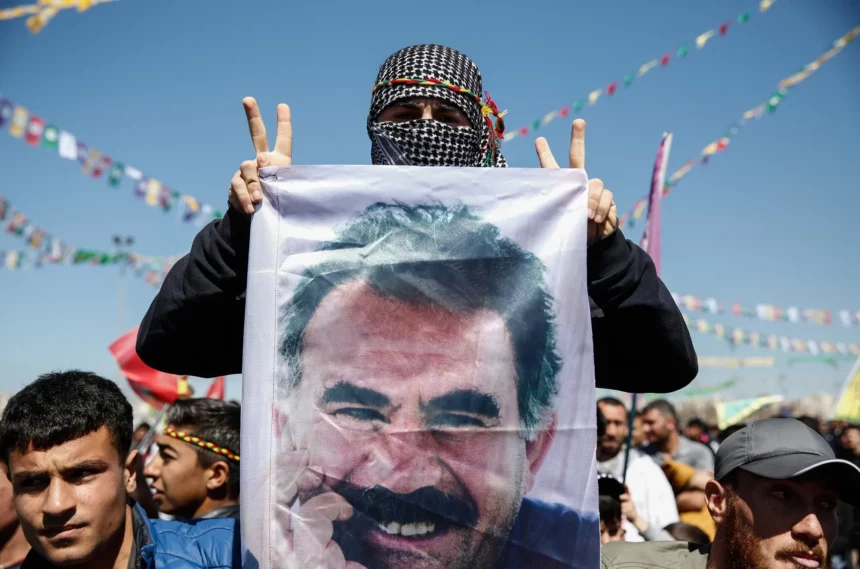A potential Turkish-led confederation, comprising Turks, Kurds, and other ethnic groups including Arabs and Turkmens, highlights evolving regional dynamics and shifting geopolitical goals. This strategy necessitates overcoming entrenched divisions while establishing a framework that promotes autonomy, cultural respect, and collaboration among many ethnic groups. This approach, influenced by Abdullah Öcalan’s ideology of Democratic Confederalism, also corresponds with broader Western objectives to counteract the impact of states such as Russia, China, and Iran in Central Asia and the Middle East. Nonetheless, although this confederative model exhibits promise, it poses concerns that could jeopardize Turkey’s internal unity if not handled with care.
Historical and Political Background
Throughout history, the Turks, Kurds, Arabs, and Turkmens have inhabited shifting political borders within the former Ottoman territories, frequently coexisting in intricate inter-ethnic dynamics. After the dissolution of the Ottoman Empire, Kurdish populations became dispersed across Turkey, Iraq, Iran, and Syria, with each state generally perceiving Kurdish autonomy movements as threats. Historically, Turkish state policies have characterized Kurdish identity as incompatible with Turkish nationalism, a position that has intensified the insurgency led by Abdullah Öcalan and the Kurdistan Workers’ Party (PKK). His appeal for a national and social revolution among Kurds underscored the Kurdish pursuit of identity and sovereignty.
In recent months, the United States and other Western powers have demonstrated an interest in resolving regional conflicts that involve Turkey and Kurdish populations. This is primarily to ensure that Turkey remains a dependable ally against Russia, China, and Iran. A Turkish-Kurdish peace, particularly through the framework of a confederation, would enable Turkey to refocus its resources on regional leadership while simultaneously reinforcing its involvement in NATO and U.S.-led coalitions.
Democratic Confederalism: A Basis for the Confederation
Abdullah Öcalan’s Democratic Confederalism, which promotes decentralization, ecological and social equity, and local governance, presents a viable paradigm for this confederation. The concepts have been largely executed in the Autonomous Administration of North and East Syria (Rojava), where Kurds, Arabs, and Assyrians collaboratively engage in local administration frameworks based on direct democratic assemblies. This model, while not without its flaws, illustrates the potential for adapting Democratic Confederalism to create a wider Turkish-led confederation, facilitating local governance and maintaining the unity of Turkey.
Öcalan’s vision holds significant importance for tackling Turkey’s internal Kurdish conflict by offering local governance while avoiding formal secession. A decentralized but unified confederation might offer a framework in which each ethnic group could exercise self-administration while still remaining under Turkey’s overarching influence. This model could prevent separatist tensions from arising by enabling Kurds and other groups to maintain cultural autonomy without demanding national sovereignty.
The Confederation as a Platform for Regional Stability
A platform for peaceful cooperation between Turkey and Kurdish factions in Syria, Iraq, and conceivably Iran could be facilitated by a confederation. It would enable Turkey to assume a “big brother” role by fostering economic integration, stabilizing borders, and providing infrastructural support, particularly in Kurdish regions. Through the promotion of mutual respect and collaboration, Turkey could secure a strategic edge, possibly utilizing the confederation to address tensions and alleviate enduring ethnic grievances. This collaborative strategy has the potential to foster trust between Turks and Kurds who have faced historical conflicts and to generate avenues for mutual prosperity.
This confederation, led by Turkey, has the potential to exemplify a model of autonomy that incorporates integrated sovereignty, striking a balance between self-governance for each group and shared responsibilities. It corresponds with Abdullah Öcalan’s concept of “democratic confederalism,” which promotes an equitable, decentralized political structure that honours the governance of local communities.
Turkey’s Role and the Regional Geopolitical Context
In a confederative model, Turkey would probably function as the primary authority managing security, economic policy, and diplomatic relations. This reflects Turkey’s objective to position itself as a prominent regional authority, managing a cohesive yet varied political environment within its vicinity. Turkey’s acknowledgment of Kurdish autonomy in Syria, akin to the autonomy of the Kurdistan Regional Government in Iraq, has the potential to establish a collaborative framework while also ensuring that Kurdish factions remain aligned with Turkish objectives.
Nonetheless, this would necessitate collaboration among regions. Iran and Iraq are likely to regard Turkey’s increasing influence with caution, particularly if it encompasses formal Kurdish autonomy, as they are concerned that such acknowledgment might intensify Kurdish independence aspirations within their own borders. Managing Turkey’s relationships with Iran, Iraq, and Syria, alongside sustaining alliances with the U.S. and other Western nations, necessitates a nuanced approach to diplomacy.
Potential for Federation: Expanding the Vision
Over time, this confederative structure may develop into a federation. In this setup, regional areas characterized by unique ethnic identities could implement a federal system that preserves local governance while still being connected to a central government led by Turkey. This transformation is poised to enhance Turkey’s geopolitical influence and promote stability in its border regions, potentially establishing a new governance model in the Middle East.
In this federation, Turkey would oversee defence and foreign policy, while each region would have the autonomy to legislate independently. This arrangement has the potential to enhance relations with Kurdish regions, acknowledging Kurdish aspirations for self-governance within a federal structure. Turkey must navigate the intricate balance of honouring regional autonomy while upholding a unified central authority.
Risks to Turkey’s Unity and Territorial Integrity
While there are possible benefits, a Turkish-led confederation/federation model presents risks that may jeopardize Turkey’s unity. Kurdish factions might advocate for greater autonomy, potentially leading to tensions with Turkish nationalists and escalating the risk of separatist movements. The presence of a variety of ethnic identities may also lead to disputes regarding resource distribution, cultural representation, and political power, resulting in division instead of unity.
Furthermore, the emergence of regional autonomy may motivate comparable movements within Turkey, particularly if the PKK and other Kurdish organizations view the confederation as a pathway to complete independence. If Turkey does not respond to these aspirations, the confederation may disintegrate, leading to heightened calls for independence and threatening the cohesion of Turkey.
External Factors and Geopolitical Challenges
The participation of external players such as Russia and Iran, who hold significant interests in Syria and Iraq and China as a rising global power, may complicate Turkey’s leadership position. A confederation supported by Turkey could be perceived as a threat by these powers, prompting them to counteract Turkey’s influence, which may lead to instability within the confederation. Furthermore, Turkey’s Western alliances would face scrutiny, as the U.S. and NATO could either support or oppose this confederation based on its alignment with their regional objectives.
Future Prospects and Strategic Benefits
A successful Turkish-led confederation might change the Middle East by setting an example of peaceful ethnic coexistence and regional cooperation. Turkey would emerge as a stabilizing force, strengthening its position as a regional leader while encouraging cultural and political diversity. A confederation would provide Kurds, Arabs, and Turkmens with cultural autonomy, lessening tensions and encouraging collaboration on resources and policy. If implemented correctly, this strategy has the potential to strengthen Turkey’s territorial integrity by addressing ethnic grievances and presenting Turkey as a regional peacekeeper and power. However, the confederation’s success would necessitate mutual trust, equitable representation, and Turkey’s commitment to decentralization principles that truly empower local communities.
Final Assessment
A Turkish-led confederation with the possibility of evolving into a federation presents both opportunities and challenges. By drawing on the principles of Democratic Confederalism, Turkey could establish a flexible framework that accommodates diverse identities while maintaining central authority. However, realizing this vision depends on overcoming deep-rooted ethnic divisions, navigating complex geopolitical relations, and ensuring that each ethnic community feels valued and represented. With careful management and diplomatic finesse, Turkey could foster a cooperative and stable future in a historically fragmented region, though the risks of division and instability remain high if these efforts falter
By: NAT Editorial Team



